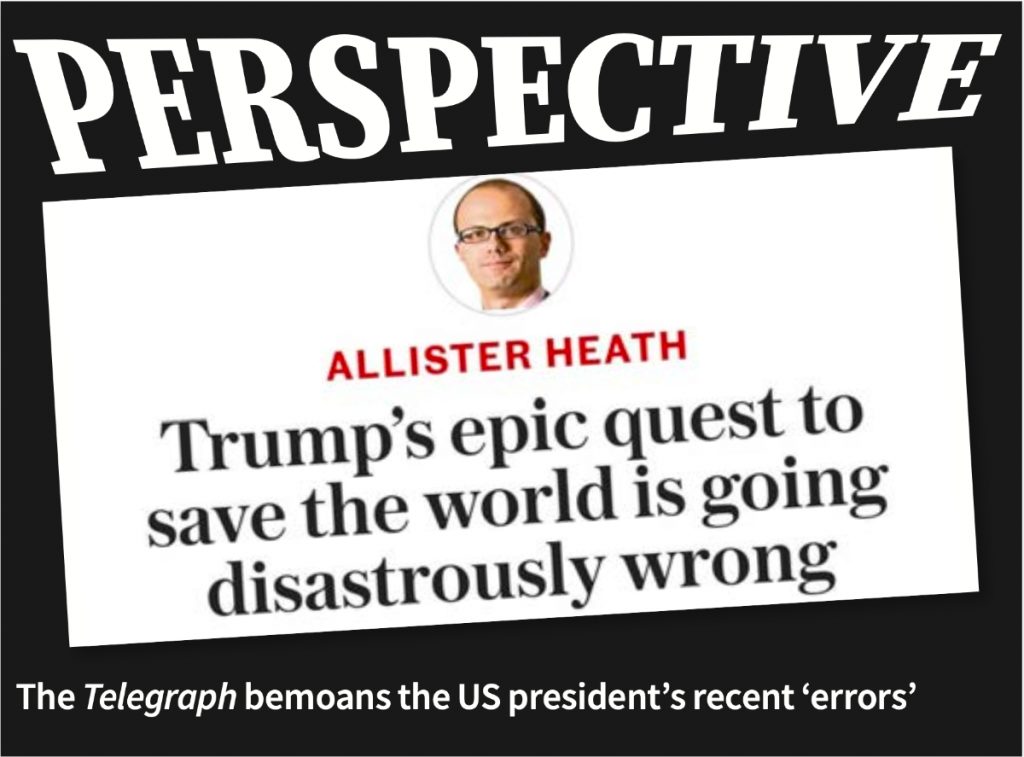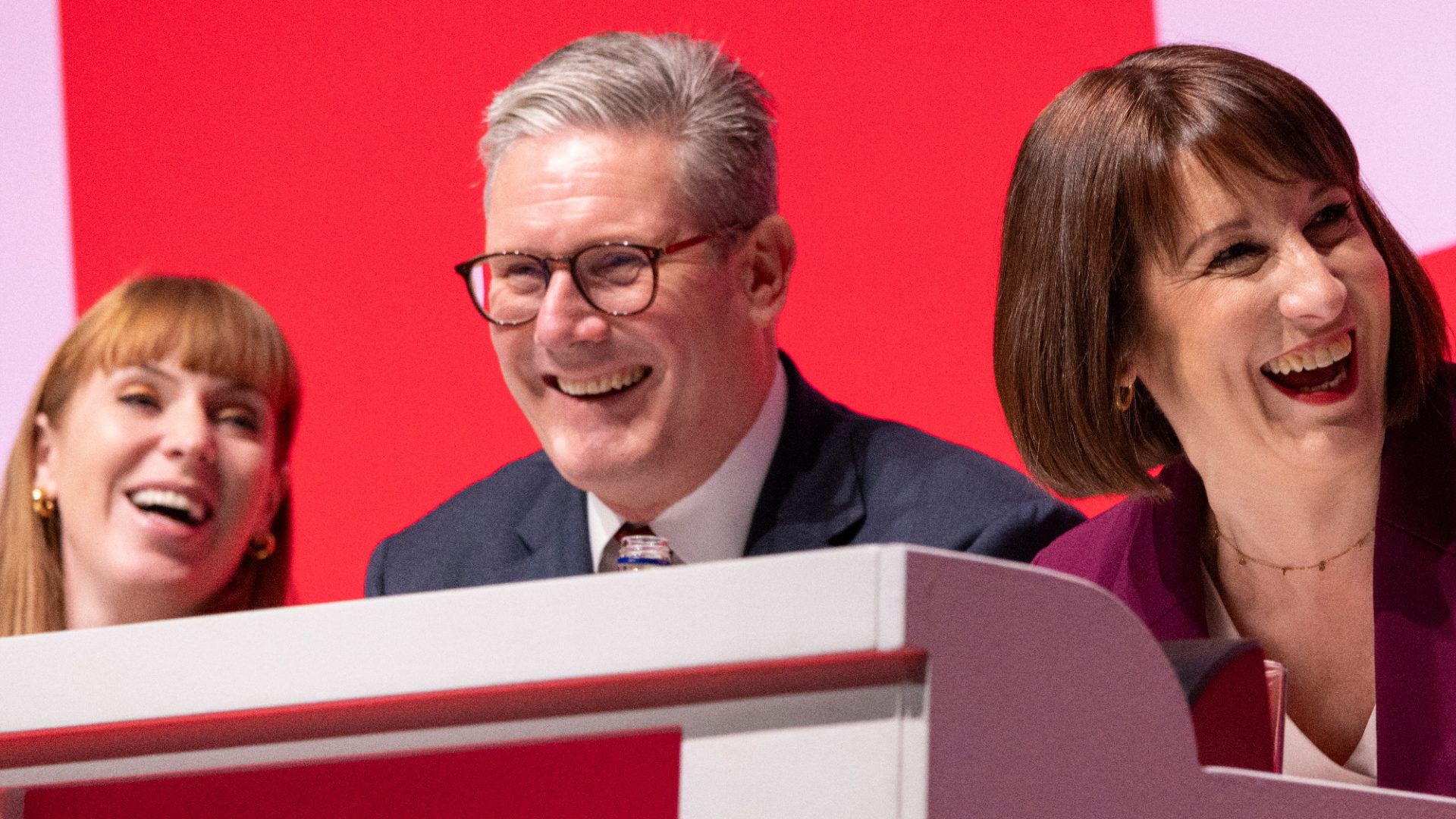Re: “Trump’s tariff disaster has wrecked Reform” by Paul Mason (TNE #431). I doubt that Nigel Farage is too worried by his orange chum’s failure. The inexorable rise of Reform continues, abetted by Labour continuing to sit on its hands over key policy issues that could both improve the lives of ordinary working people and stop the right.
Reform is vulnerable on the economy (is it protectionist or neoliberal?) and Brexit, among other things. I doubt hoping that the international coalition of the right will just fragment is going to be enough.
Labour has to act: a wealth tax, rejoin the EU, bring in proportional representation. In other words, start behaving like a Labour government.
Mark Grahame
I’ve given up on the media doing it, but why doesn’t Keir Starmer go all in on holding Nigel Farage to account for Brexit and all the broken promises – fishing, farming, NHS, the price of food? His tip-toeing is so, so frustrating!
Sam Crabtree
Labour need to act as a Labour Party – and not a continuation of the previous bunch of ne’er do wells. I am in despair at the stupidity and the hopelessness of the present government – I hate to say it, but they deserve to lose the next election if they do not change direction.
Of course we should do everything we can to realign ourselves with Europe. Is it just perverse obstinacy that seems to prevent Starmer and his team from seeing what the rest of us have seen for months, or a total lack of vision?
Liz Court
One can understand Labour’s cautious approach, having been out of power for so long, and I appreciate that the world is in a perilous state of flux at present. Yet Keir Starmer needs to understand that the public want radical change, bold policies and far-reaching projects. And yes, I believe, to eventually rejoin the EU. Money might be tight – when in recent times hasn’t it been? – but to quote the old cliche, what we must do now it speculate to accumulate, not sit on our hands and simply juggle with old policies and stances that have put us in the dangerous position we are now in.
Adam Primhak

Trump’s lapdog
Re: “Will flattery get us anywhere with Trump?” by John Kampfner (TNE #431). If you’re European, the US is, at best, culturally alien. We don’t carry guns, and we don’t go for religious fundamentalism. America is the only place where I’ve been periodically admonished for mispronouncing my surname.
Dean Acheson’s “Great Britain has lost an empire but has not yet found a role” dates from 63 years ago. That role should not be as Donald Trump’s lapdog, but as a player within a confederate Europe allied with such nations as Canada, for it is our common values that are threatened as much by Trump as they are by Vladimir Putin.
Keir Starmer will, of course, ignore actualities and roll over, so chlorinated chicken, hotly pursued by hormonally treated meat will soon be crossing the Atlantic to a despondent soundtrack of weeping British farmers, while our taxes are raised in order to give the tech bros the rest of all the money in the world.
Michael Rosenthal
I am paraphrasing, but after the attack on Pearl Harbor, Admiral Yamamoto said: “I fear all we have done is to wake a sleeping giant with a terrible resolve to strike back at us.” Maybe someone in the Trump administration has a similar insight into the long-term effects of the trade war against the rest of the world.
I think that this is the beginning of the end of the United States. Whether the union survives to its 300th anniversary is debatable at this point.
Keith Hobbs
JD Vance reckons there are strong cultural affinities between the US and the UK. Maybe there were some time before 2025, but if a majority of Americans voted for Donald Trump, I doubt they exist any longer.
Trump and Vance’s US is just that – u/s. Unserviceable. Incoherent, deranged, lunatic. Signing a trade deal with this lot is committing the UK to economic servitude. Maybe they eat too much hormone-enhanced beef?
Rex Nesbit
In “Making the most of the US brain drain” (TNE #431), Ros Taylor writes “America is not Nazi Germany…” Well, not quite yet, but it seems to be well on its way.
Shane Sidlow
Lettuce Liz Truss is following in the footsteps of Donald Trump by launching her own social media platform. We are truly in the endive days.
David Pollard
Calling time on hate
In “The battle of Adolescence” (TNE #431), David Aaronovitch writes: “So might we better look at what is on the phones than ban the phones altogether?” His next article for TNE should address this subject and give detail on how we’ll achieve the removal of hate, porn and misogyny from social media when dealing with the likes of Elon Musk and Mark Zuckerberg, and also the approximate time frame for this.
Kate Burge
Green-eyed monsters
Re: Boris Johnson comparing Keir Starmer with Pol Pot (Rats in a Sack, TNE #431). I find Johnson’s continued hatred of Starmer fascinating – it is beyond political or even personal, it is visceral.
It reminds me of Donald Trump’s obsession with Barack Obama. They cannot handle the fact that someone came from nowhere to be smarter than them, more respected, and to have had the temerity to reach the top of public office, rather than knowing their place.
Perry Hewitt
Artificial argument
Re: Emily Herring on the lack of creativity in AI art (TNE #431). I keep thinking of a meme I saw, which said “I want AI to do the washing and cleaning, so I can concentrate on creative stuff. But it seems to be turning out the other way round.”
Tony Jones
Take 100 AI-based images, properly edited, and place them next to equivalent stills from movies or photo galleries. You will not be able to tell the difference in the vast majority of cases. The output of the AI is thus the same as the still and the process through which the AI still was achieved does not necessarily reduce the potential for emotional impact.
But in my opinion, human intervention will probably always be required, both in terms of editing and in terms of crafting a sequence of prompts. Copyright, energy usage and the proliferation of false images are clearly issues, but were not the headline topic of the article.
Alexander Dale
Emily Herring makes an extensive case for why AI isn’t creative. However, the definitive argument almost certainly derives from the work of Kurt Gödel, whose 1931 “Incompleteness Proof” both made computer science possible and provides the basis for Roger Penrose’s critique of sentient AI in his opus The Emperor’s New Mind.
Without these insights, we’re reduced to aphorisms about the failings of AI in terms of emotion or some kind of inner creativity, which amounts to convoluted tautologies. Such arguments aren’t likely to persuade software engineers.
On the other hand, Gödel’s proof showed that, because there are mathematical truths that people can perceive yet which cannot be proved using a finite set of fundamental mathematical rules, then there is a real difference between our minds and a logical or mechanical process.
TNE would do well to run an article on Gödel – he is one of the most important Europeans ever.
Julian Skidmore BSc/MPhil (computer science, UEA/computer architecture, Manchester) Irish distinction
I was disappointed to see in TNE #431 that the always excellent Peter Trudgill did not address the Irish language and the beauty of its vocative case.
During our half-century relationship, I’ve periodically attempted to enthuse (bore?) my British husband about the grammatical complexity (superiority?) of the Irish language.
Peter did mention Scottish Gaelic, but no mention of Irish as a distinct language. I had hoped, in the era of Duolingo, that the reality of Irish as distinct from Gaelic or Celtic would be more widely acknowledged.
That said, I love the New European and we both eagerly await every edition. Especially my husband, who grieves daily about his lack of entitlement to an Irish (EU) passport.
Peggy O’Riordan Woodward
Bristol
Italian connection
Re: Everyday Philosophy on group genius (TNE #431). Luther Blissett did indeed play with distinction for Watford, but is it not more likely that the group of Italian artists and writers who published under that pseudonym came across the name during the season when he played for AC Milan?
Ian Kinloch
Hazel Grove, Stockport
To what purpose?
Re: Richard H Burnett-Hall’s letter on assisted dying (Letters, TNE #430). Richard says that when his life has ceased to have purpose, it will be time to go.
My life has been of no real benefit to anyone, – yes I worked, but anyone could have done those jobs, probably better. From any viewpoint, my life has been pointless.
Except that I have lived it with gusto and, mostly, thoroughly enjoyed it. I intend to continue to do so, and claim as much airspace as any useful person like Mr Burnett-Hall. I’m puzzled that he has to have purpose and can’t just enjoy our wonderful world.
Janet Welsh
Linguistic timewarp
Re: Dilettante on language (TNE #431). When I went to live in Brussels in 1976 in an English-speaking environment, I had lived in rural France for six years since leaving the UK. I had never encountered the word “hassle”, which my new colleagues fresh from England were familiar with.
In Brussels, we were still culturally cut off from the UK – we had Radio 2 on long wave on a good day, newspapers arrived a day late and there was no BBC TV. Over the years, new recruits arrived annually, and each time they came with a new word. In about 1977 it was “clout”, meaning “influence”. In 1979 it was “heavy” – one girl was glad to get away from Britain because her boyfriend was getting a bit heavy, another mentioned that his employers were getting heavy because of his bad time-keeping.
In the early 1980s, BBC television arrived by cable, then in the 1990s Eurostar made travel to London much easier. The linguistic time-warp faded away.
I think Marie should listen more often to podcasts in French, and to France Culture radio. I suspect her friend in New York may have been irritated not so much because she sounded like someone’s great aunt, but rather by the sheer number of times she said “tordant”.
Elizabeth Ann Muller

BELOW THE LINE
Comments, conversation and correspondence from our online subscribers
Re: “The Beatles v Andrew Tate” by Matthew d’Ancona (TNE #431).
As a woman who has been in thrall to the Beatles’ music and their story for as long as I can remember, I disagree with Matthew’s assertion that the “contemporary fixation” with the Beatles is somehow “a predominantly male phenomenon”. Surely this exclusionary perspective acts to limit the unique universal appeal across categories, boundaries and borders that has always been the key to the group’s enduring magic.
Mary Irwin
At school in my teens, we were due double French. Our teacher, Malcolm Laycock, doubled as a radio presenter at weekends. He came into the classroom full of excitement, wheeling in the record player.
He’d somehow acquired an advance copy of Sgt Pepper and we were among the first people in the world to hear it. He spent the next 90 minutes going through each track and explaining the often hidden meanings of the lyrics. The best school lesson EVER. For me, She’s Leaving Home remains their greatest song.
Alan Hurndall
The Beatles are as dull as the royals. Endlessly obsessed over by the media, dated and not that good either. Boring!
Richard Riddle
Josh Barrie is right about sausages. It’s virtually impossible to find a decent one in UK supermarkets. As Josh says, they’ve all been mucked around with and none of it making any improvement. Herbs, spices, (chorizo has become ubiquitous).
There are a few “farms” that advertise online, all fairly expensive even before you add the shipping. Even most of these “rustic” snaggers contain every type of foliage imaginable.
Steve Buch
Re: The criticism of “Barbarians of the far south” (Letters, TNE #431; article TNE #430). Silvia Marchetti was right to be negative about the practices described; she writes: “I couldn’t help but ponder how certain types of elemental food ritual stick in society, despite all the progress we’ve made and the achievements of human civilisation.” No matter your views on eating meat or not, there is absolutely no need to hang a live pig up by its hind legs and slit its throat.
Michael Vaughton
JOIN THE CONVERSATION
Subscribe and download our free new app to comment and chat with our writers



